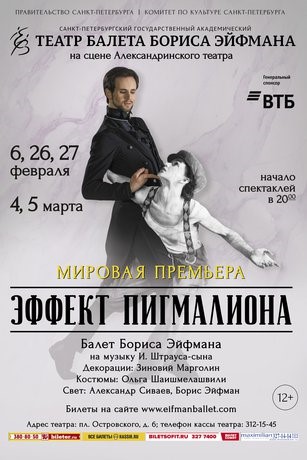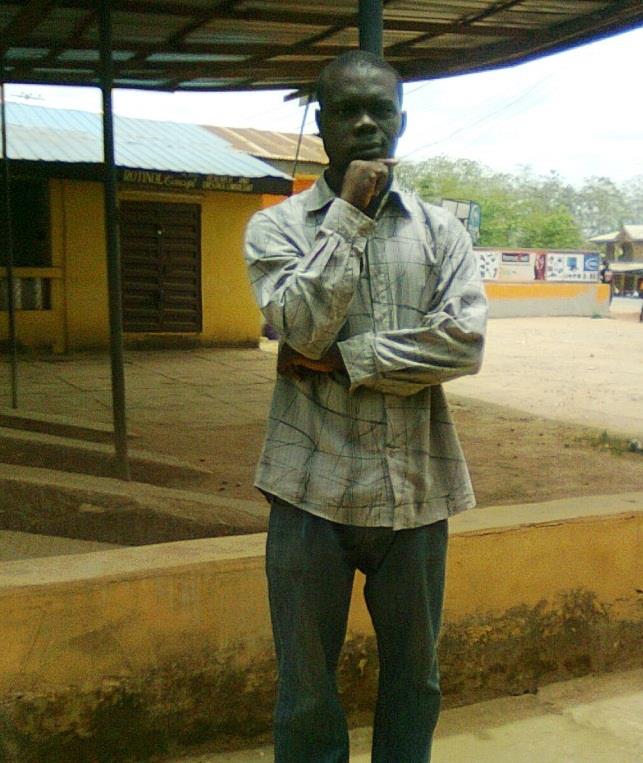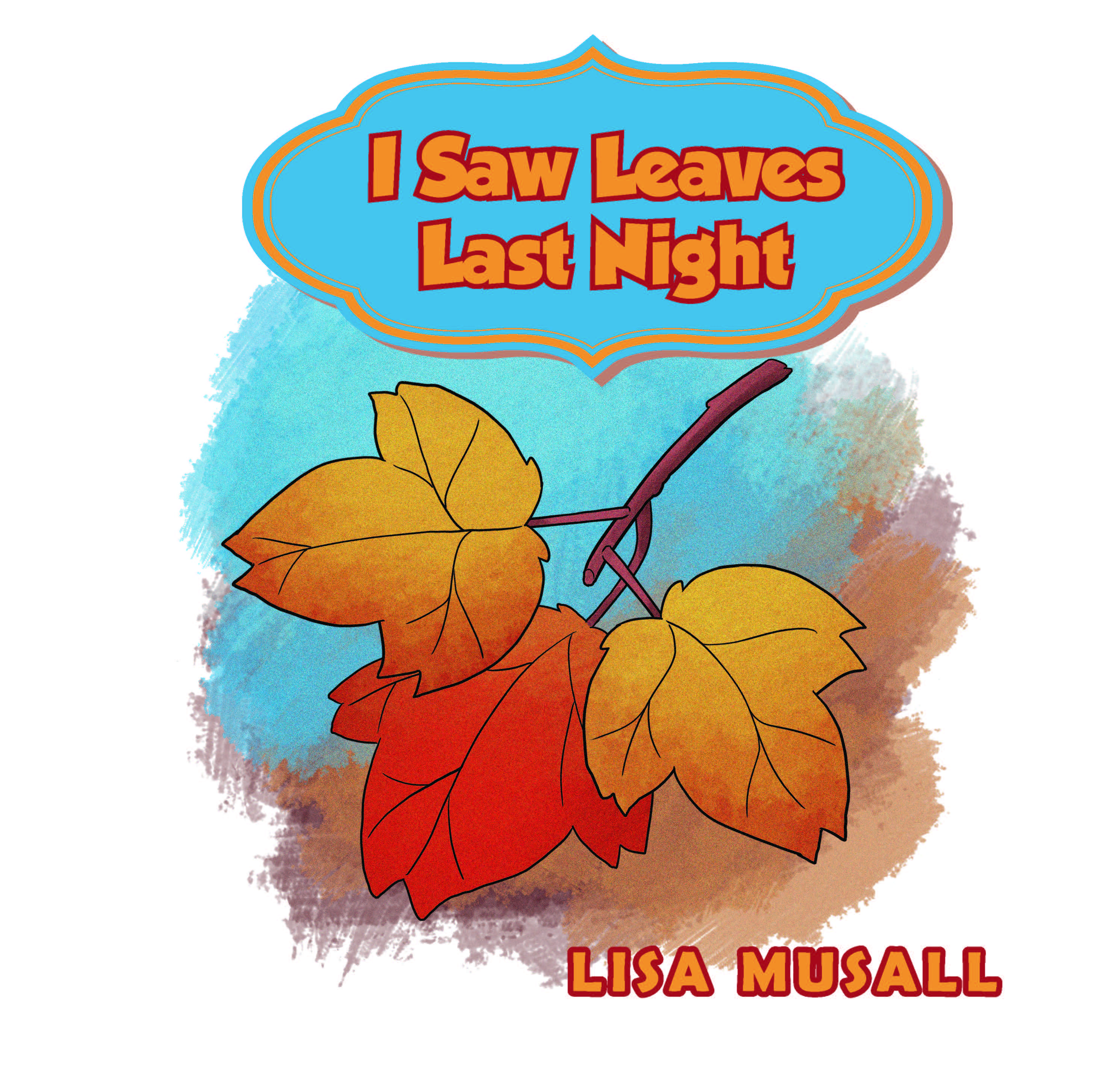Russian poster for Boris Eifman’s ballet “The Pygmalion Effect”
DID I MENTION THAT I LOVED IT?
The Pygmalion Effect
Eifman Ballet of Saint Petersburg
Zellerbach Hall
Berkeley, California
A review by Christopher Bernard
Sometimes all I want to do in a review is say “I loved it, I loved it, I loved it” two or three hundred times (enough to fill a couple of pages and one or two smartphone screens), and call it a day. Who wants to analyze something you’ve just fallen in love with, especially a fairy tale straight out of “My Fair Lady,” with a Russian twist, a nod to Ernst Lubitsch, and a Viennese soundtrack? I just want to daydream, go over it in memory, laugh out loud again at the jokes, the galloping music, the inspired moves, the tender sentiments, the big heartedness of it all.
For example, the mysterious opening where a young woman lies curled up on the ground, asleep and abandoned outside a wealthy house, where she is tormented by erotic dreams of a man being worshipped by women, none of whom is herself. And the dream goes on, segueing into what we will learn is a long flashback. Beginning with:
A street suddenly packed with a score or so skittering demimonde types dancing their hearts out, a poor workhorse of a father (danced by a vigorous Dmitry Fisher) putting his daughter, dressed up in drag-prince costume military togs, to work collecting customers for his carriage service. The daughter is a tomboy gamine named Gala (the ravishingly graceful, lithe and witty Lyubov Andreyevna) with the tatterdemalion charm of an Artful Dodger who invents the dance’s insouciant heroine out of thin air and the champagne effervescence of a Strauss polka.
Or the Ballroom Contest, watched by an enthralled Gala, where sequins-draped ladies and their sharply attired consorts ravish the stage, trying to out dance each other with an athletic, competitive joyfulness until one of the couples, Leon (a commanding Oleg Gabyshev) and his partner Tea (an Amazonian sex goddess who rules the stage whenever she is on it, Alma Petrovskaya), at the point of achieving supreme perfection, slips and collapses, mortifyingly, across the stage.
Or the organized chaos when Leon, on his way home, is mugged by some of Gala’s lowlife confreres, and Gala, still in her boy togs, and showing her street chops to smartly punishing effect, saves the overwhelmed dancer, who, thinking her a good fellow to have in a pinch, takes her home for a post-pugilist celebration.
When lo! he discovers he is a she! Much is made of the attendant confusion. Leon, of course, takes her under his wing. The father finds out and sees an easy way to cadge some rubles via his little girl, and Gala falls ever deeper into an infatuation with the fellow she saved, and Leon, for a laugh, brings the graceless, galumphing, spectacularly over-dressed hobbledehoy to his dance class, where he conceives a bizarre plan to turn this bundle of grotesquerie and unconscious charm into a prize-winning dancer. He bets on it against the scoffing Coach (a properly sneering Igor Subbotin) and proceeds to prove his point.
Though not before nearly conceding defeat as he tries to mold this feckless ne’er-do-well into something half civilized, with not even an iota of success. At which point he gets a brain wave: fit her up with an all-body robotic armature, cap her with a neon helmet, and set her off with a remote control, a la “Die Puppe” (“The Doll,” Lubitsche’s famous silent film from the 1920s), and let his fingers do her dancing.
Which is just the final push Gala needs to get it, clicking into the dazzling dancer we in the audience have known all along she is, but only now the rest of the ballroom dancing crowd is forced to admit, as she and Leon dance off with the top prize of them all.
But what is this? Leon, our Henry Higgins, the aim and goal now of little Gala’s heart, now that he has won his bet, casts her off. What is she to him? A successfully made point. With the arrogance of the “creator,” he leaves her to her venal father, her mugger class, her gutter.
But she has been poisoned by her success. She can’t return to her old life. She is no longer that, she no longer can do that. She curls up on a street bench, lost between worlds, rejecting what she once was, dreaming futilely of what she might have had and what she might have been. We are back at the beginning. Leon visits her in her dreams. She does not realize he is the cause of her misery as much as of her peak of joy. She has become a prisoner of her love.
Boris Eifman choreographed this supremely charming ballet (which is being given its U.S. premiere in these performances through Cal Performances), and shows that there is still a place for a dance of pure pleasure. I suspect that all, or at least most, of his company, the Eifman Ballet of St. Petersburg, appears, and a more vigorous, graceful, and irresistibly happy group of dancers it would be hard to imagine. (One of the heady joys for an American is seeing this example of the Russian style of ballet dancing at its best: sharp, exuberantly athletic, and romantic, all at the same time. One gets an idea where Balanchine came from.)
The brilliant sets were by Zinovy Margolin, the deliciously louche costumes by Olga Shaishmelashvili. The effortlessly engaging music was, for the most part, by Johann Strauss, Jr., with a few numbers by Josef and Eduard from the same, copiously composing family, and a handsomely judged concluding contrast from tender, truthful, unsentimental Mozart.
_____
Christopher Bernard is co-editor and poetry editor of Caveat Lector. He writes on dance, drama, and art for Synchronized Chaos. His most recent book is the poetry collection Chien Lunatique.
His novel Meditations on Love and Catastrophe at The Liars’ Café will be out later this year.










